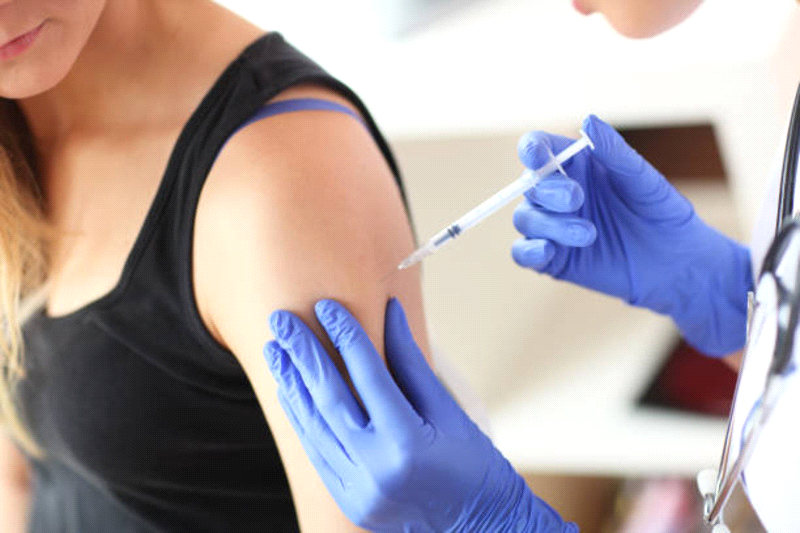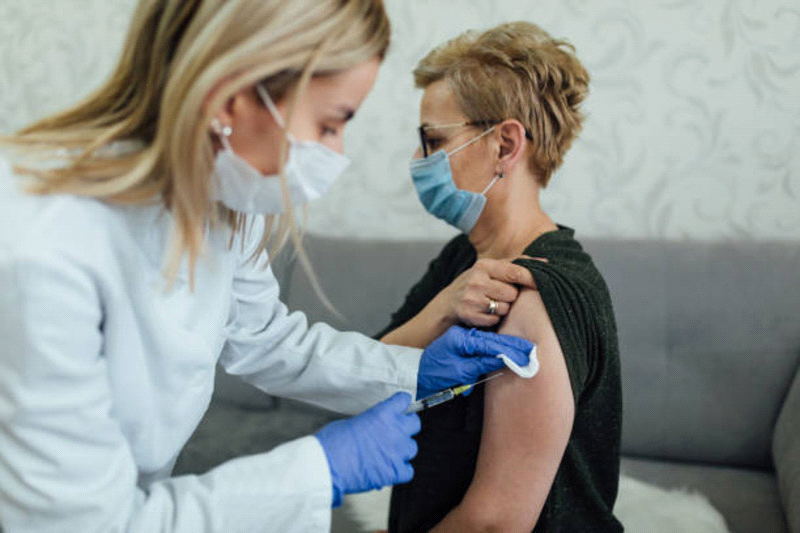Allergies can be debilitating and frustrating for those that suffer from them, even impacting daily life. There are many medications available to relieve symptoms, yet in some cases the best solution may be allergen immunotherapy - more commonly known as 'allergy shots'. Allergy shots work by introducing small doses of allergens into a patient's system over time. This encourages the body to produce antibodies so it recognizes the allergen and no longer reacts negatively when exposed. In this comprehensive guide, we’ll explain how allergy shots work, who should get them, what allergic reactions they can treat (and which allergies they cannot), potential side effects and common protocol for getting an allergy shot treatment plan started.
An Overview of Allergy Shots:

Allergy shots are a form of immunotherapy, sometimes called “desensitization therapy.” They involve introducing small doses of an allergen into the body so it can build up immunity to that particular substance. Common allergens used in allergy shots include;
- Pollen from trees and grasses
- Dust mites
- Animal dander
- Insect venom
Allergy shots can be used to treat both seasonal allergies (like hay fever) and other types of allergic reactions, like food allergies.
The goal is to give the body an opportunity to build up a tolerance to the allergen by gradually increasing doses over time. Most allergy shot protocols start with low doses and increase every few weeks, depending on how well the body is responding. Generally, the entire process takes 3 to 5 years depending on the individual patient and the severity of their allergies.
Who Should Get Allergy Shots?
Allergy shots are most effective for people who suffer from moderate to severe allergies that can’t be managed with medications. They are not recommended for mild allergies or those caused by food allergies. Allergy shots may also be recommended for people who have environmental allergies that are difficult to avoid, like pollen from trees or grasses.
Benefits of Allergy Shots:
- Allergy shots can provide long-term relief from allergic reactions. Most people report a significant reduction in their symptoms after several years of treatment.
- Allergy shots are very safe and have few side effects. The most common side effect is localized itching, swelling or redness at the injection site.
- Unlike other forms of allergy treatments, allergy shots are not associated with any potential interactions or drug side effects.
- Allergy shots can also be used to treat insect venom allergies, which can be life threatening if left untreated.
- Allergy shots may also prevent the development of asthma in patients who have environmental allergies.
Potential Side Effects:

- Local Reactions: The most common side effect of allergy shots is a localized reaction at the injection site. This can include redness, swelling and/or itching. Generally these reactions are mild and go away on their own within a few hours, but they may be more severe in some cases.
- Systemic Reactions: In rare cases, allergy shots can cause a systemic reaction, meaning an allergic reaction that affects the whole body. Symptoms include hives, wheezing and difficulty breathing. If these reactions occur, they should be treated as medical emergencies and immediate medical attention should be sought.
- Allergic Reactions: In extremely rare cases, patients may develop an allergic reaction to the allergen in their shot. Symptoms of this type of reaction can include itching, swelling or difficulty breathing within a few minutes of receiving the injection.
Getting Started With Your Allergy Shot Treatment Plan:
If you and your doctor decide that allergy shots are right for you, the next step is to get a referral to an allergist or immunologist. They will be able to discuss your allergies and ask questions about your medical history in order to develop a treatment plan that’s right for you.
What to Expect During an Allergy Shot Appointment?
Once you’ve been referred to an allergist, they will likely begin with a series of tests to determine which allergen is causing your allergies. This could include skin prick tests or RAST (radioallergosorbent) tests. Once the appropriate allergen has been identified, the allergist will discuss a plan for allergy shots and how they can help to reduce your symptoms.
At every appointment, the allergist will administer a shot of increasing strength in order to increase your tolerance for that allergen over time. Generally, the first few appointments involve injections of very low doses, and each subsequent appointment will be slightly stronger than the last.
Types of Allergens Used in Allergy Shots:
- Pollen from trees, grasses and weeds
- Dust mites
- Animal dander (from cats, dogs, horses etc.)
- Mold spores
- Insect venom (for those with severe reactions to stings)
- Foods such as peanuts and eggs (though this type of immunotherapy is less common).
Conclusion:
Allergy shots can be an effective treatment for moderate to severe allergies that don’t respond to medications. They involve introducing small doses of allergens into the body over time in order to build up immunity and reduce allergic reactions. While allergy shots may cause some localized or systemic reactions, they are generally safe and have few side effects. If you think allergy shots may be right for you, speak to your doctor to discuss a treatment plan that’s best for you.




